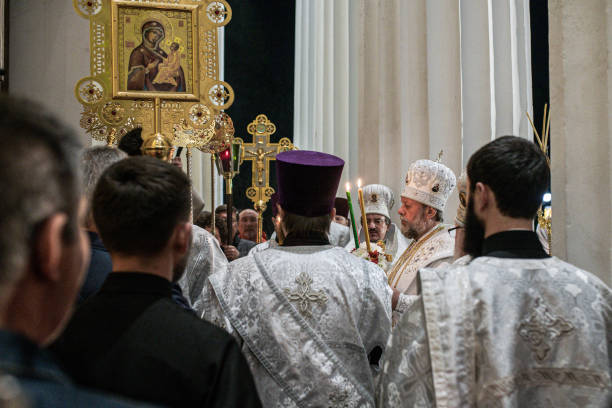Russia Used Moldovan Priests to Influence Elections, Reuters Reports

Russia funded pilgrimages for Moldovan priests, who, upon returning home, leveraged their religious influence to promote anti-European narratives and shape public opinion ahead of Moldova’s elections.
The Gaze reports on it, referring to Reuters.
Russia used Moldovan Orthodox priests as a tool to influence the elections in Moldova, paying for their pilgrimages to Moscow and providing them with debit cards with money transfers upon their return home.
The priests, including Father Mihai Bicu, received financial support in exchange for creating Telegram channels for their parishes, where they spread anti-European narratives and promoted traditional family values, warning believers about “gay Europe.”
Over the course of a year, about 90 such channels were created, regularly publishing identical content and reaching thousands of subscribers. Although the messages were not overtly pro-Russian, they coincided with the narratives of opposition parties that support closer ties with Moscow.
Moldova and Western think tanks view such actions as part of the Kremlin's large-scale “shadow war,” which includes online disinformation, cyberattacks, and support for pro-Russian politicians.
Reuters found that the Kremlin used these agents to organize the creation and management of Telegram channels for parishes in Moldova, which systematically spread anti-European narratives, calling on believers to oppose the government's pro-Western policies and adhere to traditional values. Analysis of social media data showed that Russian agents controlled the content and frequency of posts, ensuring consistency in messages that reached thousands of subscribers.
In addition, three specific Russians were identified who accompanied Moldovan priests four times during last year's pilgrimages.
They are Artem Starostin, former head of the United Russia party's executive committee in Vladimir Oblast; Alexander Ralnikov, former spokesperson for the Kremlin-backed governor of Astrakhan Oblast; and Sergei Lazarev, former head of advertising and advisor to United Russia.
They interacted directly with the priests and played a key role in promoting Russian narratives in Moldova.
Moldovan leaders and security experts emphasize that using the church for political influence is particularly immoral, as religious institutions enjoy a high level of trust in the country.
“The most immoral feature of Russian electoral interference in elections in Moldova is the use of the most trusted institution — the Church,” said Stanislav Secrieru, national security adviser to Moldova's President.
As The Gaze reported earlier, after a meeting of the Supreme Security Council, Moldovan President Maia Sandu said that Russia is preparing unprecedented interference in the parliamentary elections scheduled for September.